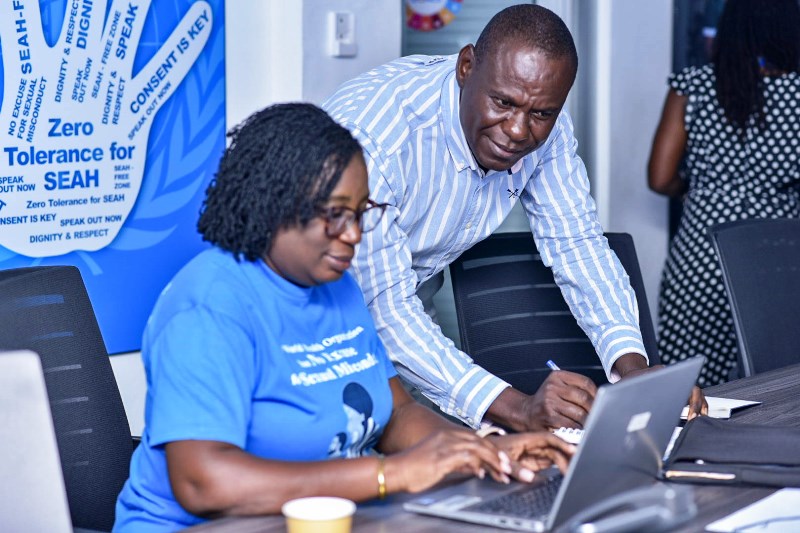Sexual exploitation, abuse, and harassment (SEAH) pose serious risks to the integrity of development and health programs, harming survivors while weakening trust in systems designed to protect vulnerable populations. Recognizing this, the World Health Organization (WHO) Ghana recently conducted a specialized training session on Prevention and Response to Sexual Exploitation, Abuse, and Harassment (PRSEAH) in Accra. The workshop, held as part of Ghana’s Pandemic Fund project implementation, equipped program leads and partners with critical skills to detect risks, enforce accountability, and create safer environments for beneficiaries and staff.
The training aligns with Ghana’s broader commitment to ethical and equitable health programming, following the establishment of a National Steering Committee for the Pandemic Fund. Through interactive case studies and discussions, participants learned to implement survivor-centered approaches, strengthen reporting mechanisms, and uphold global safeguarding standards. Mrs. Akosua Kwakye, the lead facilitator, stressed that PRSEAH is not merely a compliance issue but a moral obligation: “Protecting dignity and ensuring justice must be at the core of every intervention we deliver.”
Dr. Adwoa Twum-Barimah, Technical Officer at WHO Ghana, highlighted the pivotal role of program officers in preventing misconduct: “Empowering them with the right tools doesn’t just safeguard individuals—it reinforces entire health systems.” The session emphasized early warning signs, organizational accountability, and WHO protocols to mitigate SEAH risks, particularly in high-stakes initiatives like pandemic preparedness and health security projects.
By integrating PRSEAH principles from the outset, Ghana is setting a strong precedent for ethical programming—one that prioritizes safety, justice, and trust in health interventions. As the country advances its Pandemic Fund initiatives, this proactive approach ensures that resilience-building efforts remain inclusive, respectful, and free from exploitation, ultimately fostering more effective and equitable outcomes for all.














